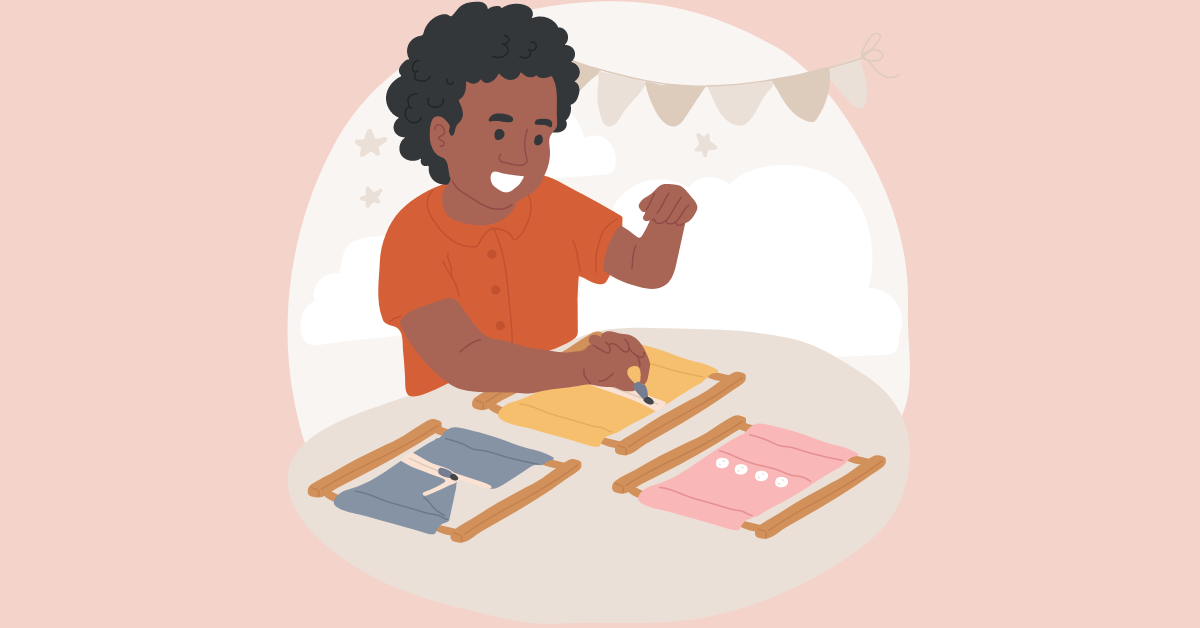What are Montessori toys?
Montessori toys are based on the principles of the Montessori method of education. Developed by Italian physician and educator Maria Montessori in the early 20th century, the Montessori method emphasizes a child-centered, hands-on approach to learning that is designed to support children’s natural curiosity and creativity.
One of the key characteristics of Montessori toys is that they are designed to be used in a hands-on, experiential way, rather than simply being played with or watched. This encourages children to engage with the toy and explore it in a way that helps them learn through doing and experimentation.
Montessori toys are also designed to be open-ended, meaning that they can be used in a variety of different ways, depending on the child’s interests and abilities. This allows children to explore and discover new ways to use the toy, which helps to encourage creativity and problem-solving skills.

Montessori toys are typically designed to be aesthetically pleasing and made with high-quality materials that are durable and built to last. This means that parents and educators can feel good about investing in Montessori toys, knowing that they will be a valuable resource for children’s learning and development.
Some examples of popular Montessori toys include wooden blocks, sensory materials such as sand and water trays, and manipulative toys like puzzles and geometric shapes. These toys can be used to support children’s cognitive development, fine motor skills, and social-emotional learning, and can be adapted for children of different ages and abilities.
What are the benefits of Montessori toys?
Montessori toys are designed to support children’s natural curiosity, creativity, and sense of exploration, as well as to help them develop important skills such as concentration, problem-solving, and fine motor skills.
Self-directed learning
Children are free to choose which toys they want to play with and how they want to use them, which helps them develop independence and a sense of agency.
Hands-on learning
Many Montessori toys are designed to be used in a hands-on, experiential way, which can help children learn by doing and exploring.
Encourage problem-solving
Many Montessori toys are designed to challenge children and encourage them to think creatively and critically to solve problems and figure out how things work.
Support cognitive development
Montessori toys can help children develop important cognitive skills such as concentration, attention to detail, and logical thinking.
Promote fine motor skills
Many Montessori toys are designed to help children develop their fine motor skills, such as the ability to manipulate small objects, which is important for tasks like writing and drawing.
Versatile
Montessori toys can be used in a variety of settings, including at home, in the classroom, or in therapy settings, and can be adapted for children of different ages and abilities.
Durable
Montessori toys are typically made with high-quality materials that are designed to withstand the wear and tear of everyday use, making them a good investment for parents and educators.
There are many different types of Montessori toys available, so it can be helpful to think about what kind of learning experiences and skills you want to support with the toys you choose.
Factors to consider when shopping for Montessori toys
- Age appropriateness: Make sure to choose toys that are appropriate for your child’s age and developmental stage. For example, a child who is just starting to explore their environment may benefit from toys that encourage sensory exploration, such as a sand tray or a set of nesting cups.
- Interests: Consider your child’s interests and choose toys that will engage and challenge them. For example, if your child loves building and constructing, you might consider a set of wooden blocks or a building set.
- Skills development: Think about the skills you want to support with the toys you choose. For example, if you want to help your child develop their fine motor skills, you might consider a toy that requires them to manipulate small objects, such as a puzzle or a set of beads and laces.
- Open-ended play: Choose toys that allow for open-ended play and exploration, rather than toys with a specific predetermined use. This will encourage your child to use their imagination and think creatively.
- Quality: Look for toys that are made with high-quality materials that are durable and built to last. This will ensure that you get the most value for your money.
Where to Buy Montessori Toys
If you are ready to buy some Montessori toys for your child, here are some tips! There are a variety of places where you can buy Montessori toys:
When you’re shopping, choose toys that are made with high-quality materials that are built to last, as these will be a better investment in the long run. You may also want to consider purchasing from a reputable retailer or manufacturer to ensure that you are getting a quality product.
Montessori toys are a valuable resource for children’s learning and development, because they encourage hands-on, experiential learning and support the development of important skills such as concentration, problem-solving, and fine motor skills. Whether used at home or in the classroom, these toys can be a powerful tool for supporting children’s growth and development.


One response to “Do Montessori Toys Make Your Child Smarter?”
[…] Montessori classrooms are carefully prepared to meet the developmental needs of children. They feature specific learning areas, organized shelves, and low-lying furniture to create an inviting and accessible space for children. The materials are displayed in an orderly manner, making it easy for children to choose and engage with them independently. Montessori classrooms are equipped with unique learning materials that are designed to facilitate hands-on exploration and learning. These materials are carefully selected and sequenced to introduce concepts progressively, promoting self-discovery and understanding. Read more about Montessori toys and materials here. […]